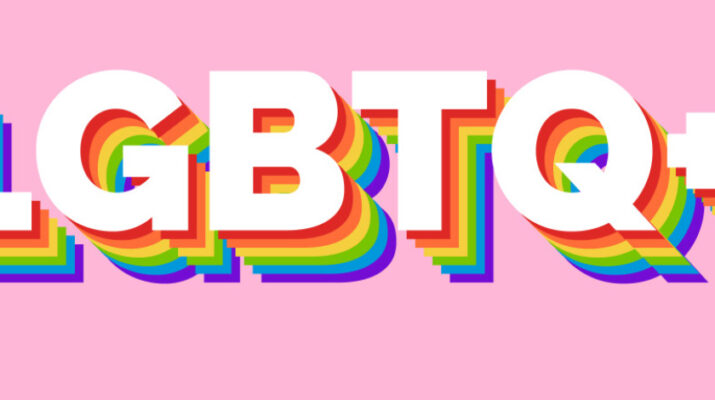By Deborah Jeanne Sergeant
Understanding the “alphabet soup” of LGBTQ+ can challenge people outside of these groups, and using the right pronouns can also seem baffling to some.
“Using correct pronouns is important in validating who a person is,” Karin Fuller, family peer advocate at ACR Health Q Center in Syracuse. “When we use the pronouns an individual asks us to use, we play a huge part in affirming them. It might seem like a small thing to people who are cisgender meaning those whose sex assigned at birth and gender identity align but for those who are trans and gender expansive, it is huge. You can make someone’s entire day just by using their correct name and pronouns, they feel seen, respected and validated.”
Doing so in a healthcare setting is especially important so patients feel heard and so they build a trusting relationship with their healthcare provider. Some healthcare situations include questions which some people may find uncomfortable, so feeling that their healthcare provider cares may improve communication.
“Many of us we do not have to give much thought when going to a provider, however for someone who is part of the LGBTQ+ community, there is a lot more thought going into it,” Fuller. “Not only might there be concerns about why they are seeking care in the first place, but they may also be concerned about being outed in the waiting room or having to spend their appointment having to educate the provider or in a sense justify who they are. By using the correct name and pronouns in the healthcare setting, you are providing a more welcoming space and in a small way alleviating some of the concerns the patient may have when they seek care.”
It may be helpful for providers to “check in” by asking if you’re using the right language as part of a patient-centered approach. Recording the correct title helps improve consistency when addressing people.
As further information is needed, it is also alright to ask people to define terms that are unfamiliar or that may be used in ways which you do not expect.
Katrina Ehmann, licensed clinical social worker and non-institutional care program coordinator and veteran care coordinator for LGBTQ+ Health Program at the Department of Veteran Affairs in Rochester, said that these letters frequently represent the terms that capture “the spectrum of how we relate to others sexually, romantically, emotionally and also how we define who we are by our gender or gender expression. Most commonly known of the acronym are L=Lesbian, G=Gay, B=Bisexual, T=Transgender, Q=Queer. The ‘plus’ signifies the many other identities and sexual orientations.”
She encourages people to ask open-ended questions such as “Who do you live with?” or “Who do you spend most of your time with?” instead of “Are you married?”
“When assessing someone’s overall health, ask if they’re sexually active, how many partners, male, female or other?” she said. “Let the person know that it’s important for you to understand this aspect of their health for preventative health care and to ensure their health care goals are met.”
Awareness as to why these questions are asked can help prevent misunderstandings.
Ehmann believes that listening and mirroring the other person’s language can help foster a greater level of comfort.
“Use the name or pronouns they’re asking to be called by and if they’re speaking about a relationship and use the term ‘significant other’ for instance, you too should use that same term,” she said. “If you make a mistake, it’s okay, apologize and be sure next time to use the proper language, as they’ve asked you to use.”
Ehmann said that using the correct terms with others may not be possible and that some new terms may develop, and older ones may change in meaning, since language is ever evolving.
But it all hinges upon respect for others.
“Ultimately when interacting with others whether in the healthcare setting or in general, every person deserves to be treated respectfully and to feel safe, so approach everyone you meet with an open mind and open heart,” Ehmann said.

